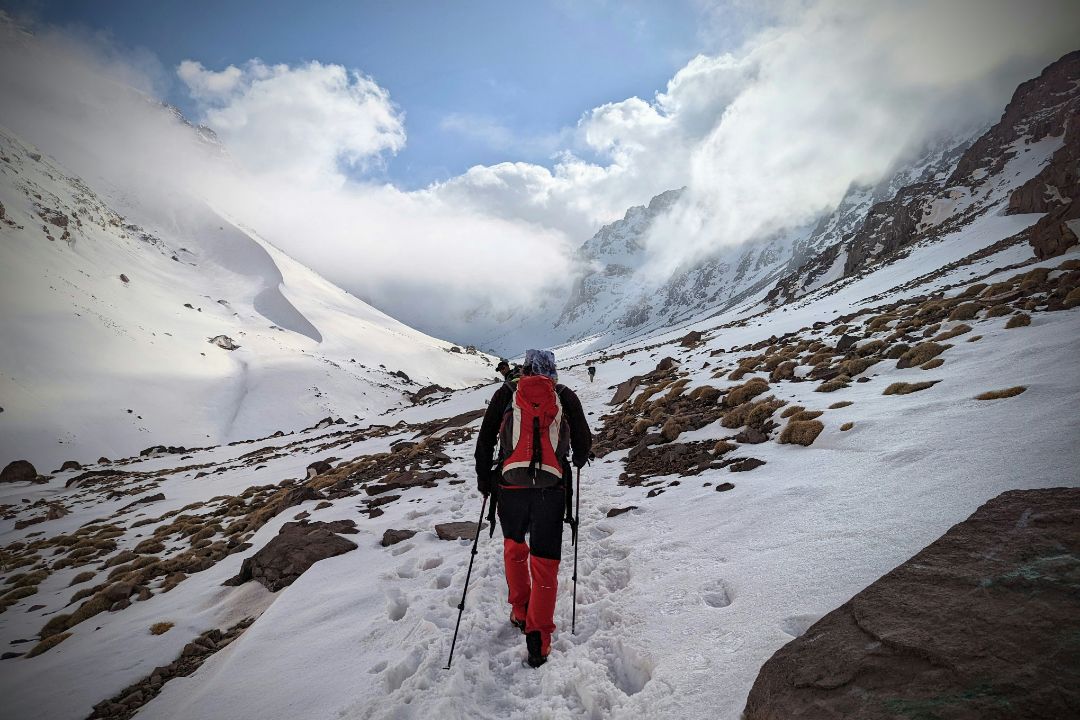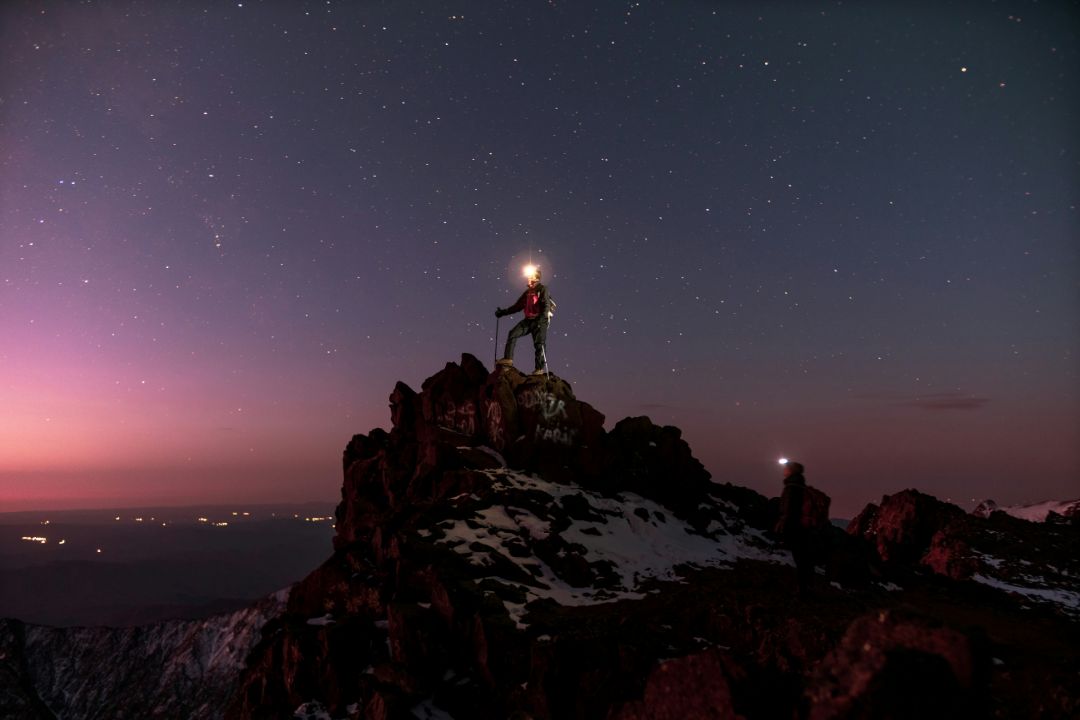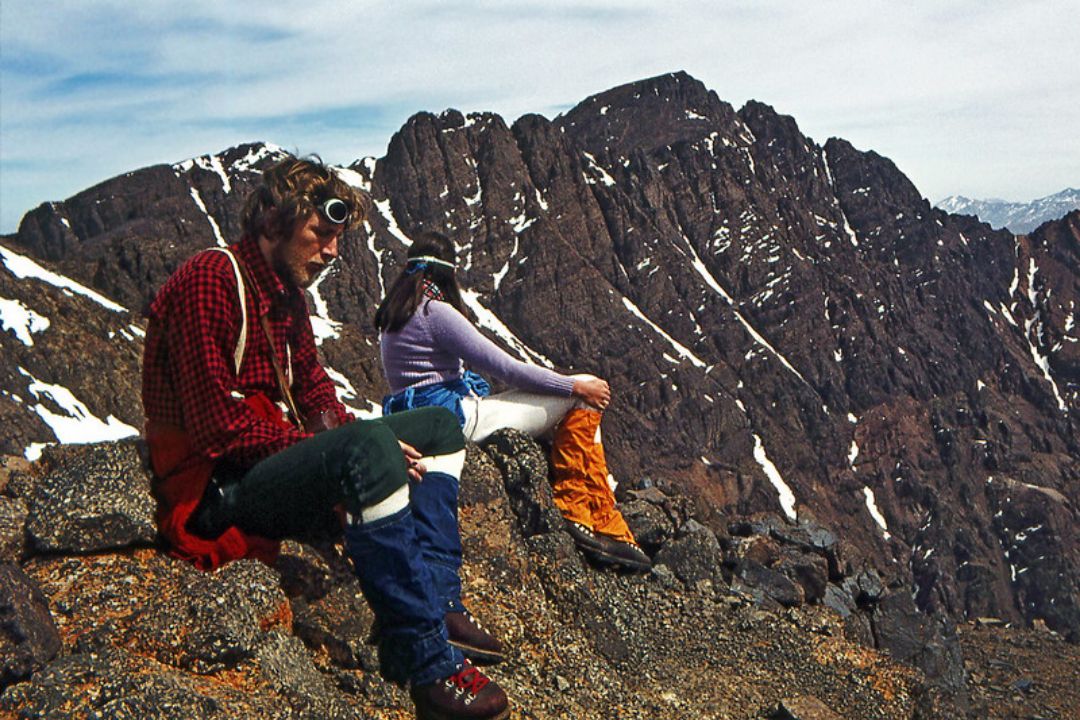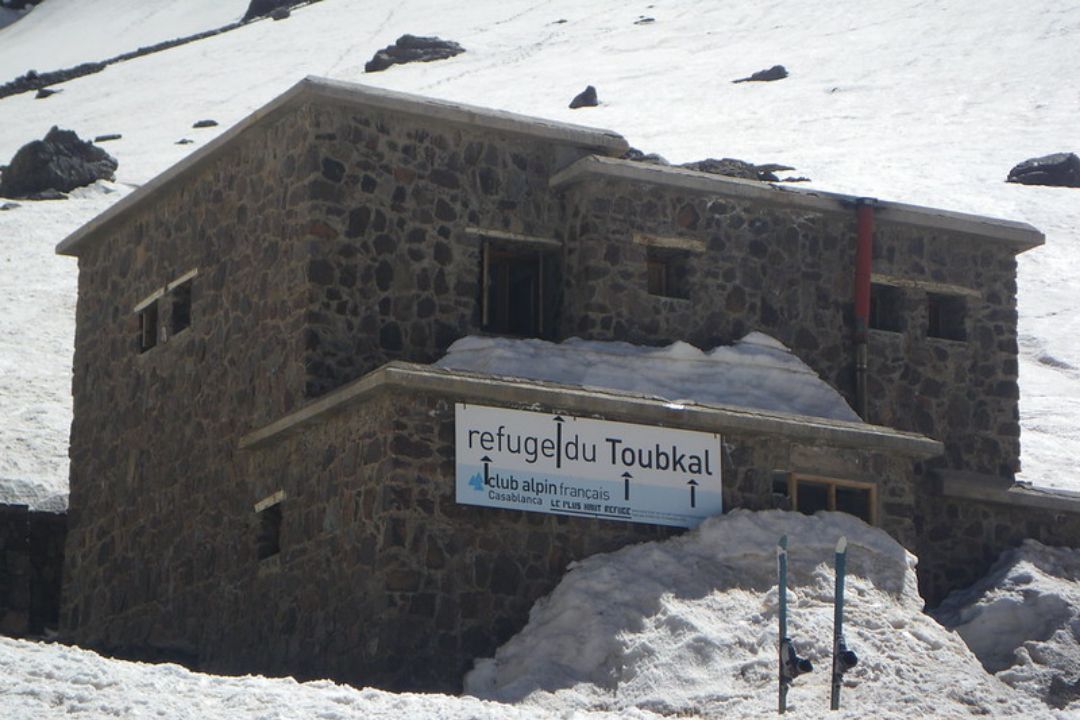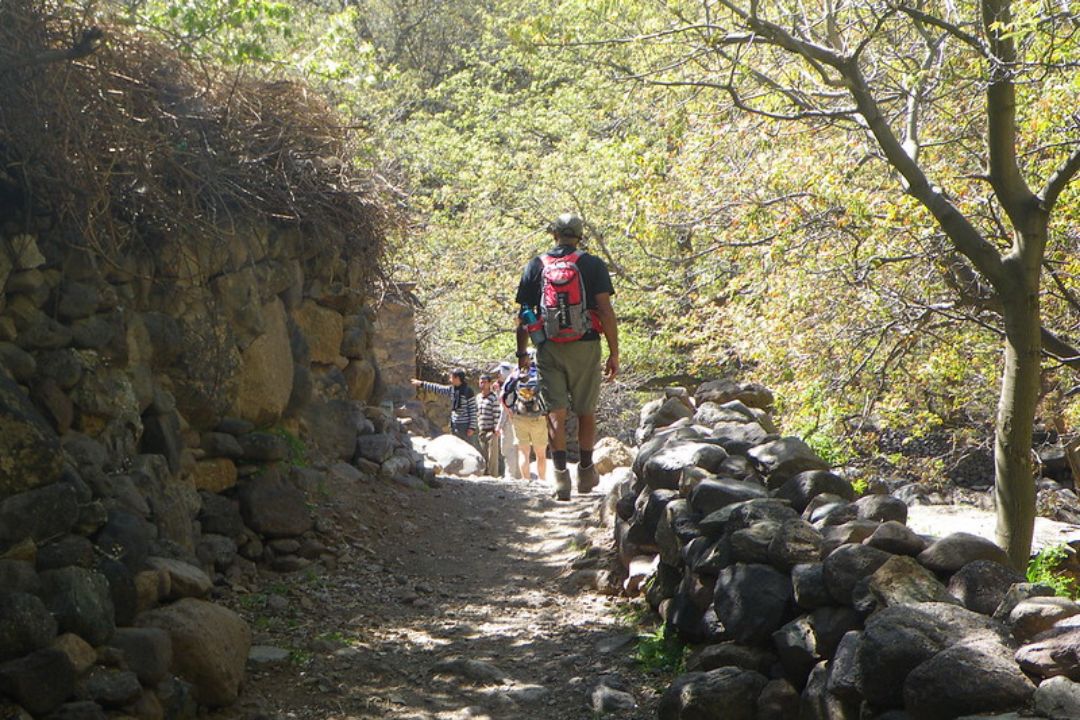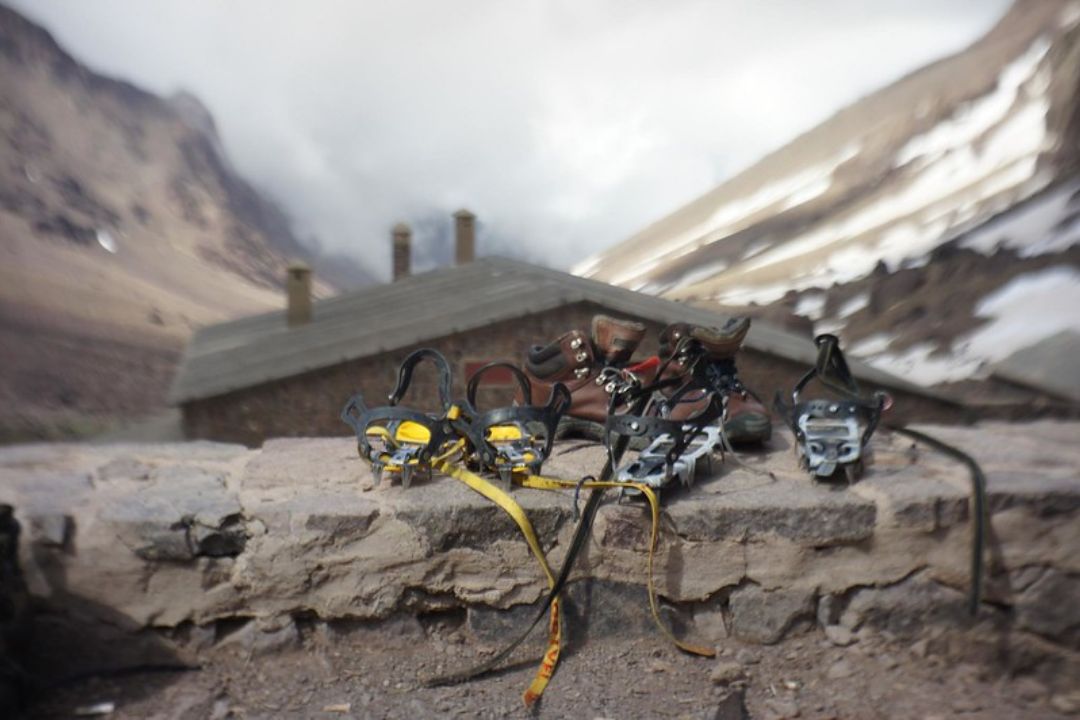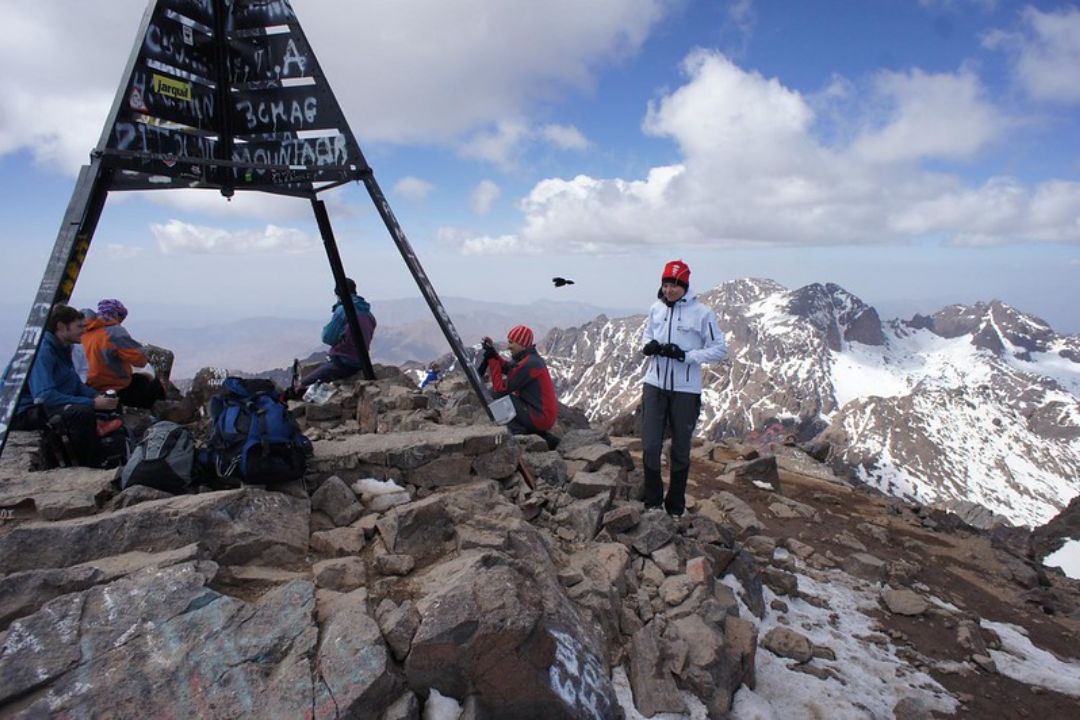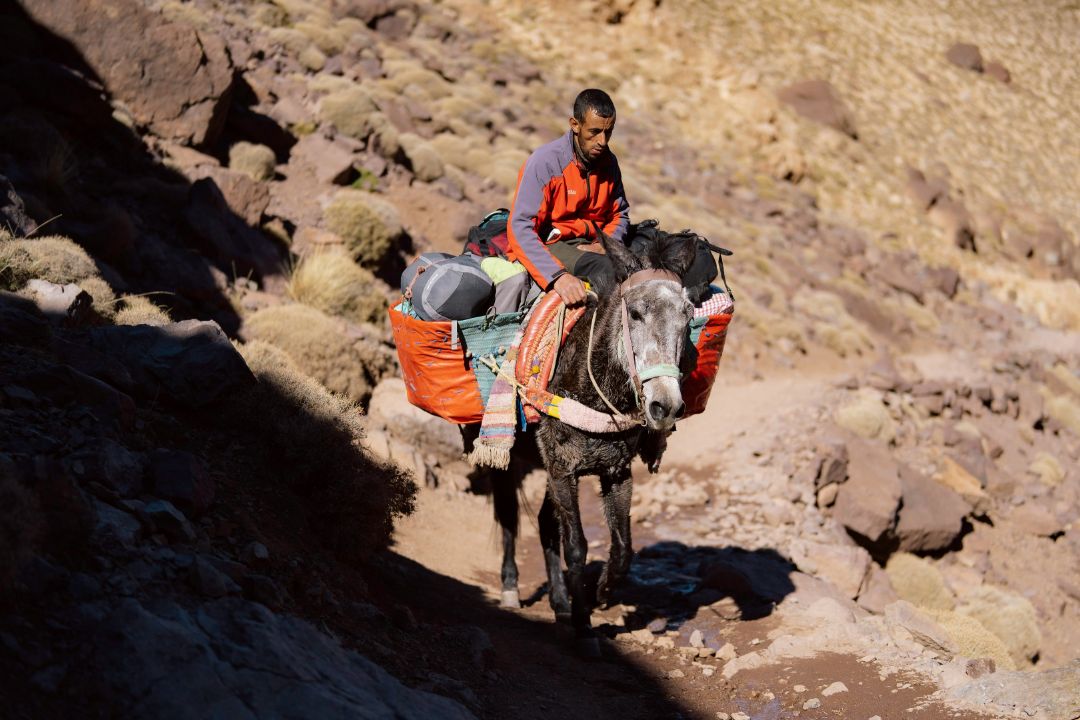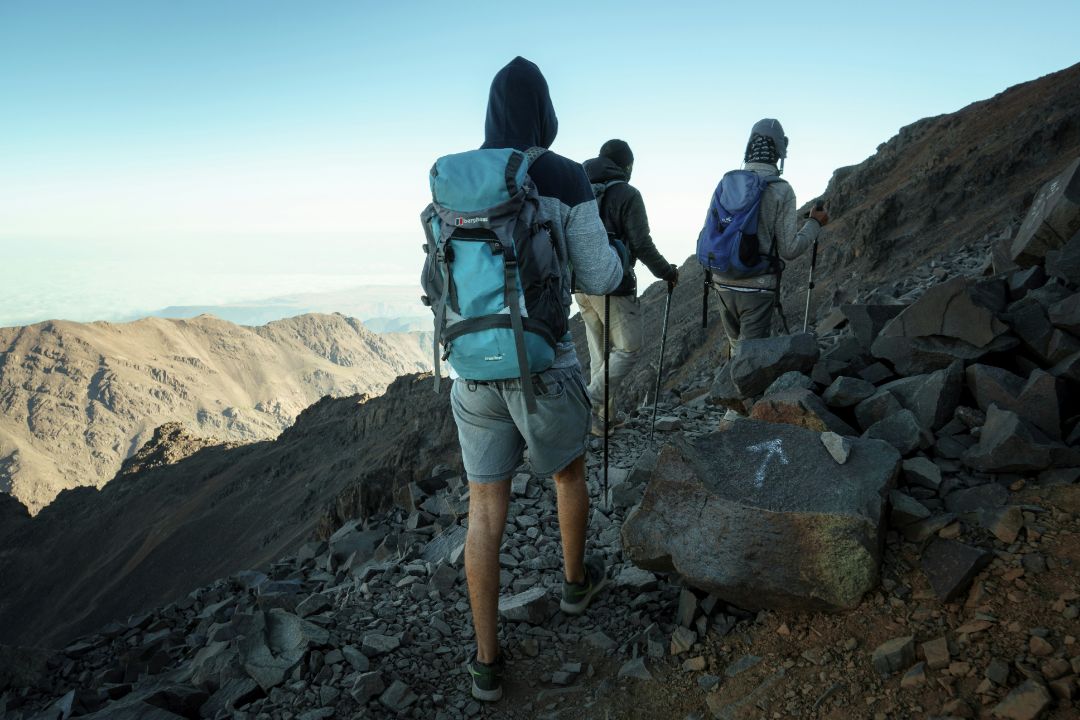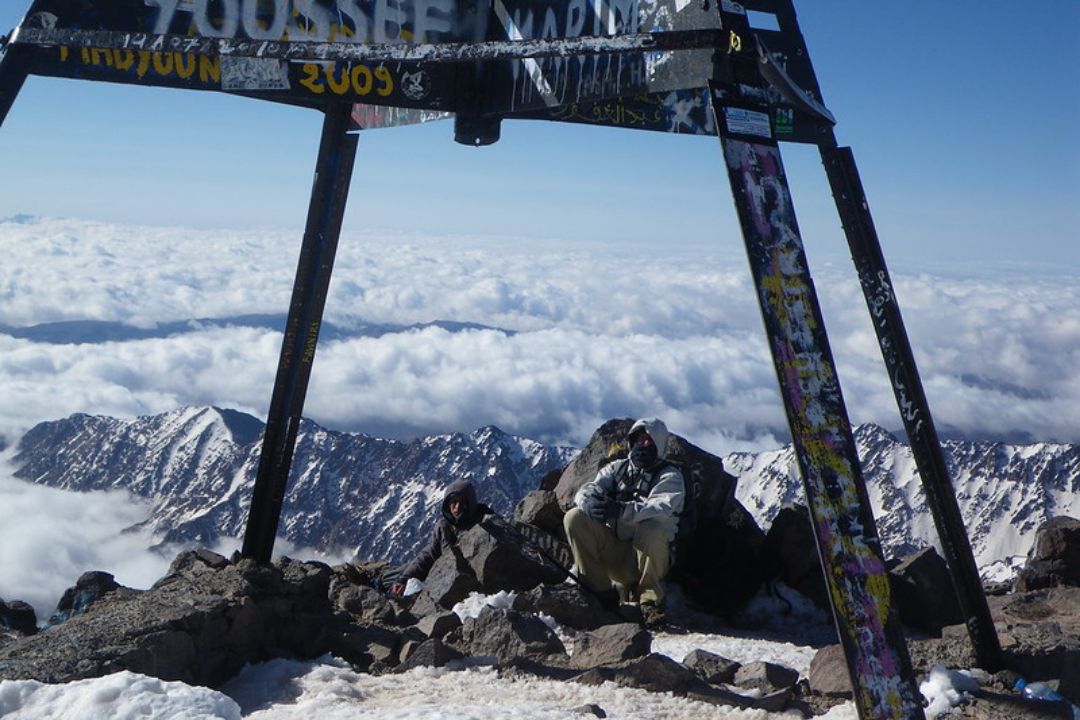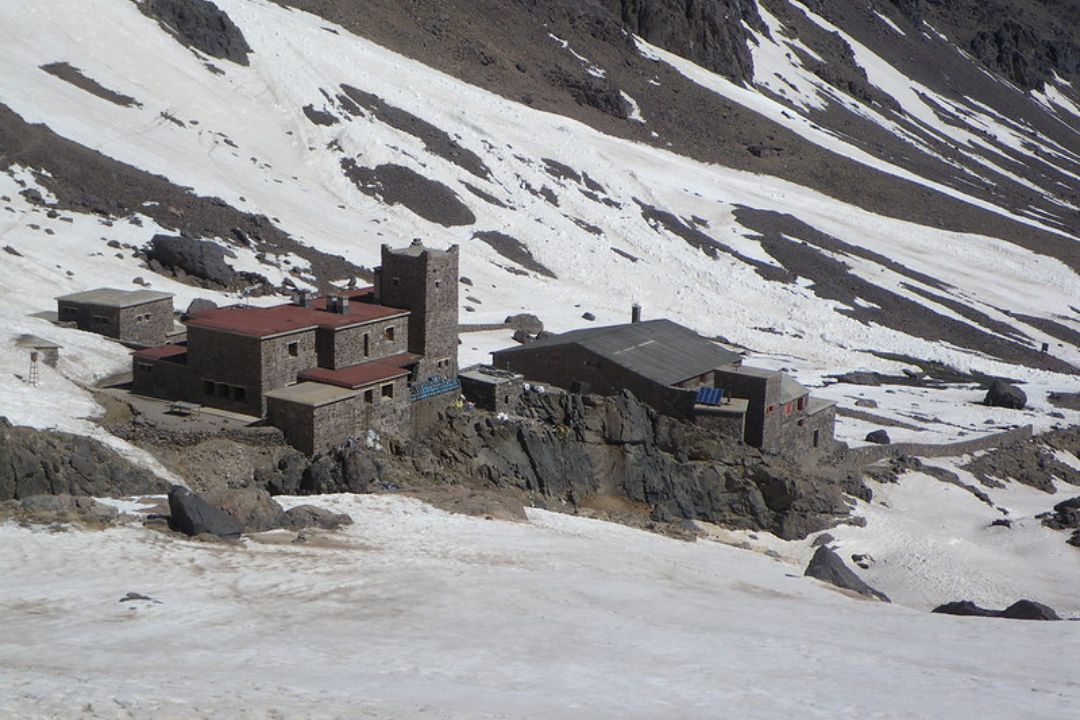2-Day Trek in the Toubkal Massif By Morocco Pathways
Duration: 2 Days
2 Person Minimum
Overview
Although much of the High Atlas is made up of sedimentary rocks, the Toubkal Massif is a volcanic area, eroded into alpine ridges cut by deep, narrow green valleys, terraced fields, and Berber villages perched on crests. Mount Toubkal (4167 m), the highest peak in North Africa, requires no technical climbing skills, and most people in good physical condition should be able to reach the summit, provided they are well-prepared and respect the altitude.
Join us for this 2-day trek alongside our dynamic and professional team (guides, muleteers, cooks…).
Why Choose This Trek?
*Sublime landscapes in the heart of two lush valleys, sourced from the northern slopes of the Ouanoukrim and the famous Tazagharte plateau.
*Culture that offers emotionally or intellectually moving experiences.
*A unique irrigation system and terraced farming.
*The lifestyle and encounter with the local population — a truly authentic discovery not to be missed.
Availability:
*This trek is available all year round, on the dates that suit you. (Group or private tours upon request)
Tour Plan
After breakfast, transfer by comfortable vehicle toward the Toubkal Massif. You’ll cross part of the Haouz plain and the Moulay Brahim gorges to reach the village of Asni, then follow the road up the beautiful Ait Mizane Valley to the village of Imlil (1740 m). Meet your guide, muleteer, and cook. After loading the mules, you begin your trek with a steady ascent leading to the Chamharouch shrine. Lunch break, then continue your hike in the afternoon to reach the Toubkal Refuge (3207 m). Dinner and overnight at the refuge. Approx. 5 hours of walking.
Early in the morning, begin the climb to Mount Toubkal (4167 m), the highest summit in North Africa. From the top, you’ll enjoy an incredible 360° panoramic view: to the south, the Siroua Massif; to the east, the M’Goun; to the north, the Haouz plain and Marrakech; and to the west, the majestic Ouanoukrim Mountains. Take time to admire the landscape and savor these unforgettable moments before descending to the refuge. Then continue the trek back to the village of Aremd, with lunch en route. Return transfer to Marrakech. End of our services. Approx. 9 to 10 hours of walking.
Included
- Round-trip transfer Marrakech – Imlil in a comfortable vehicle
- Experienced local guide
- Muleteer for luggage transport
- Cook for meals during the trek
- 1 night at the Toubkal refuge (3207m)
- Mules for carrying equipment and bags
- Assistance during the ascent of Mount Toubkal (4167m)
Exclude
- Rental of equipment (e.g., sleeping bag, if not provided)
- Flight or transportation to Marrakech
- Personal drinks, snacks, bottled water
- Tips for the team (guide, muleteer, cook)
Extra Info
Essential Packing List for a 2-Day Toubkal Trek
Clothing:
- Trekking boots (broken in beforehand).
- Warm jacket and rainproof jacket with a hood.
- Warm hat and sun hat.
- Gloves (waterproof in winter).
- Comfortable trekking pants and lightweight long-sleeve shirts.
- Thermal base layers.
- Wool socks (2 pairs).
- Lightweight sandals for the refuge.
Equipment:
- Backpack for trekking gear and a daypack for essentials (water, snacks, extra layers).
- Sleeping bag.
- Water bottle with purification tablets.
- Walking poles.
- Headlamp with spare batteries.
Other Essentials:
- Sun cream and lip balm.
- First-aid kit (pain relievers, plasters, antiseptic wipes, rehydration sachets).
- Passport and travel insurance details.
- Small toiletries (toothbrush, soap, towel, antibacterial gel).
- Snacks and energy bars.
Winter-Specific Gear:
- Crampons, gaiters, and ice axes.
- Down or windproof outer layers.
- Snow goggles.
Note: Equipment is available for rent at reasonable prices.*
Monnaie :
1 euro équivaut à environ 10 à 11 dirhams selon le cour de la banque. Dans toutes les grandes villes, vous pourrez retirer de l'argent avec une carte Visa internationale. Vous trouverez également de nombreux bureaux de change. Attention, ne retirez pas trop d'argent car l'exportation des dirhams est interdite.
Heure locale :
Le Maroc est à l'heure GMT, il y a donc une heure de décalage par rapport à l’Europe.
Passeport :
Pour les ressortissants français, belges ou suisses, passeport en cours de validité (pas de visa) valable au moins six mois après la date d’entrée sur le territoire marocain.
Santé :
Aucune vaccination n'est obligatoire. La meilleure précaution restant la prévention.
From
150€

